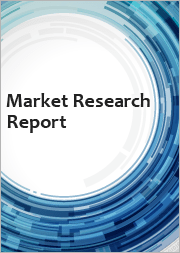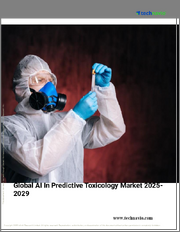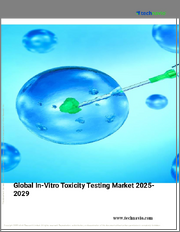
|
시장보고서
상품코드
1479062
세계 체외 독성 시험 시장 평가, 제품 및 서비스별, 독성 엔드포인트 시험별, 수법별, 기술별, 최종 사용자별, 지역별, 기회 및 예측(2017-2031년)In-vitro Toxicology Testing Market Assessment, By Product and Services, By Toxicity Endpoint & Test, By Method, By Technology, By End-user, By Region, Opportunities and Forecast, 2017-2031F |
||||||
세계 체외독성시험 시장 규모는 2023년 142억 2,000만 달러에서 2031년 307억 3,000만 달러에 이를 것으로 예측되며, 예측기간인 2024-2031년 CAGR로 10.11%의 성장이 예상된다 됩니다. 시장은 최근 몇 년간 현저한 성장을 보이고 있으며 앞으로도 견조한 확대 속도를 유지할 것으로 예상됩니다. 체외 독성 시험은 실험실과 같은 관리된 환경에서 다양한 화학물질, 의약품, 화장품 등 많은 제품을 시험할 수 있습니다. 개발의 초기 단계에서이 단계는 화학적으로 만들어진 물질이 소비자에게 유해하지 않도록 독성을 알기 위해 필수적입니다. 이 시험은 동물이나 인간에게 투여하지 않고 화학, 의약품 및 화장품의 안전성을 평가합니다.
시장은 제약, 화학, 화장품 산업에 직접적인 영향을 미치는 많은 요인에 의해 성장을 보여줍니다. 규제 분석 증가와 세계 정부 기관이 부과하는 엄격한 안전성 평가는이 거대한 시장의 주요 성장 촉진요인입니다. 이러한 정책을 통해 시장의 산업과 기업은 엄격한 규정을 준수하고 제품의 안전을 보장하는 절차를 밟을 수 있습니다. 게다가, 높은 처리량, 3D 모델, 장기 온칩 모델과 같은 기술의 진보는 보다 안정적이고 정확한 결과를 단시간에 얻을 수 있음을 입증했습니다. 이것은 시장에 기능에 대한 신뢰를 부여하고 성장을 지원합니다. 다양한 기술과 의약품 개발을 위한 업계 선도적인 전략적 파트너십이 시장 성장을 가속하고 있습니다.
예를 들어, 2023년 6월 제약, 생명공학, 영양보조 식품 시장의 세계 제조 파트너인 Lonza는 항체 약물 복합체 개발을 위한 임상 단계 기술 플랫폼의 상업화에 주력하는 Synafix의 인수 결정을 발표했습니다.
신약 및 화학제품 평가에 대한 수요 증가
시장의 성장은 신약과 화학물질의 안전성 평가에 대한 수요 증가에 의해 뒷받침되고 있습니다. 이러한 평가는 종합적인 독성 평가를 의무화하는 엄격한 규제 요건에 의해 추진되고 있습니다. 체외 시험은 비용 효율적이고 효율적이며 동물 실험과 같은 기존의 방법에서 벗어나 제품에 대한 빠르고 정확한 지식을 얻을 수 있습니다. 높은 처리량 스크리닝 및 장기 온칩 모델과 같은 기술의 발전은 동물 실험과 같은 비윤리적인 방법에 의존하지 않는 자유를 가져왔습니다. 이러한 새로운 모델은 분석의 예측 정확성과 타당성을 향상시키는 것으로 입증되었습니다.
게다가 주목받은 의약품의 개발 중지에 의한 안전성에 대한 우려가 높아짐에 따라 의약품 개발 프로세스 전반에 걸쳐 엄격한 안전성의 평가가 점점 중요해지고 있습니다. 체외시험은 비용과 시간의 효율화를 실현하고 만성질환의 유행과 고령화의 진행에 대응하기 위한 보다 안전하고 효과적인 치료법의 개발을 촉진함으로써 제약 및 생명공학산업의 강력한 성장을 지원합니다.
2022년 10월, Thermo Fisher Scientific Inc.는 켄터키 주에서 사업을 확장하고 환자의 삶을 변화시키는 의약품을 제공함으로써 고객을 지원한다고 발표했습니다. 현재 시설에는 중앙 연구소와 바이오 마커 서비스가 있으며, 바이오 의약품 소비자에게 의약품 개발을 뒷받침하는 고품질의 실험실 업무를 제공합니다. 이를 통해 이 회사는 세계 여러 지역에서 진단 사업을 확대하고 있으며 세계적인 존재를 높이는 데 기여하고 있습니다.
기술 진보
분석의 예측 정확도와 관련성을 높이기 위해 많은 새로운 개발 기술이이 시장에 도입되었습니다. 높은 처리량 스크리닝, 3D 세포 배양, 장기 온칩 등의 모델은 신뢰할 수 있는 독성 평가를 가능하게 하며, 동물 실험 모델과 같은 기존 모델에 의존하지 않는 플랫폼을 제공합니다. 이러한 첨단 모델은 복잡한 생리학적 과정과 장기간 상호작용을 자극할 수 있으며 동시에 약물 독성에 대한 보다 인간과 관련된 이해를 제공합니다. 또한 이러한 모델에 AI를 통합하면 데이터 분석과 분석이 향상되고 잠재적인 독성학적 위험을 파악할 수 있습니다. 자동화와 로보틱스는 다수의 화합물을 동시에 높은 처리량 스크리닝을 가능하게 함으로써 체외독성 시험 절차에 혁명을 가져왔습니다.
본 보고서에서는 세계의 체외독성시험시장에 대해 조사 분석하여 시장 규모와 예측, 시장 역학, 주요기업의 정세와 전망 등의 정보를 제공합니다.
목차
제1장 조사 방법
제2장 프로젝트의 범위와 정의
제3장 주요 요약
제4장 세계의 체외독성 시험 시장 전망(2017-2031년)
- 시장 규모와 예측
- 금액
- 수량
- 제품 및 서비스별
- 소모품
- 분석
- 서비스
- 기기
- 소프트웨어
- 독성 엔드포인트 및 시험별
- ADME
- 피부 자극, 부식, 감작
- 유전독성
- 세포독성
- 안독성
- 장기독성
- 광독성
- 경피독성
- 기타
- 수법별
- 세포 분석
- 생화학 검정
- In Silico 모델
- 분자독성시험
- 생체외 모델
- 기술별
- 세포 배양
- 고출력
- 톡시코유전체학
- 분자 이미징
- 최종 사용자별
- 의약품, 바이오의약품
- 화장품, 가정용품
- 식품산업
- 진단
- 화학공업
- 기타
- 지역별
- 북미
- 유럽
- 아시아태평양
- 남미
- 중동 및 아프리카
- 시장 점유율: 기업별(2023년)
제5장 세계의 체외독성 시험 시장 전망: 지역별(2017-2031년)
- 북미
- 시장 규모와 예측
- 제품 및 서비스별
- 독성 엔드포인트 시험별
- 수법별
- 기술별
- 최종 사용자별
- 미국
- 캐나다
- 멕시코
- 유럽
- 독일
- 프랑스
- 이탈리아
- 영국
- 러시아
- 네덜란드
- 스페인
- 터키
- 폴란드
- 아시아태평양
- 인도
- 중국
- 일본
- 호주
- 베트남
- 한국
- 인도네시아
- 필리핀
- 남미
- 브라질
- 아르헨티나
- 중동 및 아프리카
- 사우디아라비아
- 아랍에미리트(UAE)
- 남아프리카
제6장 시장 매핑(2023년)
- 제품 및 서비스별
- 독성 엔드포인트 시험별
- 수법별
- 기술별
- 최종 사용자별
- 지역별
제7장 거시적 환경과 산업 구조
- 수급 분석
- 수입 수출 분석
- 밸류체인 분석
- PESTEL 분석
- Porter's Five Forces 분석
제8장 시장 역학
- 성장 촉진요인
- 성장 억제요인(과제, 성장 억제요인)
제9장 규제 틀, 혁신
- 임상시험
- 특허 상황
- 혁신/신기술
제10장 주요 기업의 정세
- 마켓 리더 상위 5개사의 경쟁 매트릭스
- 마켓 리더 상위 5개사 시장 수익 분석(2023년)
- 합병과 인수/합작사업(해당하는 경우)
- SWOT 분석(시장기업 5사)
- 특허 분석(해당하는 경우)
제11장 가격 분석
제12장 사례 연구
제13장 주요 기업의 전망
- Abbott Laboratories
- Agilent Technologies, Inc.
- Bio-Rad Laboratories, Inc.
- Catalent, Inc.
- Charles River Laboratories International, Inc.
- Danaher Corporation
- Eurofins Scientific
- Evotec SE
- Laboratory Corporation of America Holdings
- Merck KGaA
- Societe Generale de Surveillance SA
- Thermo Fisher Scientific Inc
제14장 전략적 추천
제15장 당사에 대하여 면책사항
JHS 24.05.23Global in-vitro toxicology testing market is projected to witness a CAGR of 10.11% during the forecast period 2024-2031, growing from USD 14.22 billion in 2023 to USD 30.73 billion in 2031. The market has experienced significant growth in recent years and is expected to maintain a strong pace of expansion in the coming years. In-vitro toxicology testing enables testing of various chemicals, drugs, cosmetics and many other products in a controlled environment such as a laboratory. This step in the earlier stages of development is mandatory to know the toxicity of any chemically made substance so that it is not harmful for the consumers. This test evaluates the safety of any chemicals, drugs, or cosmetics without subjecting them to any animals or humans.
The in-vitro toxicology testing market is witnessing growth driven by many factors directly affecting the pharmaceutical, chemical and cosmetics industries. Increasing regulatory analysis and stringent safety evaluations imposed by governmental bodies worldwide are the main factors fueling the growth of this huge market. These measures make industries and players in its market comply with strict regulations and enable them to follow a procedure that ensures the safety of the product. Additionally, advancements in technology such as high-throughput and 3D models, organ-on-a-chip models, have proven to offer much more reliable and accurate results in less times. It has given the market confidence to function, hence supporting its growth. Strategic partnerships between industry giants to develop different technologies and drugs is driving the market growth.
For instance, in June 2023, a global manufacturing partner of pharmaceutical, biotech, and nutraceutical markets, Lonza announced its decision to acquire Synaffix which focuses on commercializing its clinical-stage technology platform for developing antibody-drug conjugates.
Rising Demand for Assessment of New Drugs and Chemicals
The growth of in-vitro toxicology testing market is fueled by increasing demand for safety assessments of new drug and chemicals. These assessments are driven by stringent regulatory requirements mandating comprehensive toxicity evaluations. In-vitro testing is cost-effective and efficient and saves us from the old methods such as animal testing and provides us with quick and more accurate insights for our product. Technological advancements like that of high-throughput screening and organ-on-a-chip models have given us the freedom to not rely on unethical methods such as that of animal-testing. These new models have been proven to enhance the predictive accuracy and relevance of assays.
Moreover, rigorous safety assessments have become increasingly important throughout the drug development process following the increased safety concerns for high-profile drug withdrawals. In-vitro testing offers cost and time efficiencies and supports the pharmaceutical and biotechnology industries' robust growth by facilitating the development of safer and more effective therapeutic agents to address the increasing prevalence of chronic diseases and aging populations.
In October 2022, Thermo Fisher Scientific Inc. announced that they will expand operations in Kentucky to help customers by delivering life-changing medicines to patients. The current facility includes central lab and biomarker services, providing biopharma consumers with high-quality lab work to boost drug development. It has helped the company expand its diagnostics business across various regions in the world and helped increase its global presence.
Technological Advancements
Many newly developed technologies have been introduced to this market to enhance the predictive accuracy and relevance of assays. Models such as high-throughput screening, 3D cell culture, and organ-on-a-chip have enabled reliable toxicity assessments giving us the platform to be able to not rely on traditional models like that of animal testing models. These advanced models allow stimulation of complex physiological processes and organ interactions, while providing a more human-relevant understanding of drug toxicity. Additionally, integration of AI with these models improves the data interpretation and analysis which is helpful in identifying any potential toxicological risks. Automation and robotics have revolutionized the procedure of in-vitro toxicology testing by enabling high-throughput screening of a large number of compounds simultaneously.
The adoption of stringent guidelines, standardized protocols, and regulations ensure consistency and reproducibility across assays, strengthening their acceptance by regulatory agencies and pharmaceuticals. It underscores the importance of in-vitro testing in the early stages of drug development and ensures the market of in-vitro toxicology testing is driven by expansion of its applications during pre-clinical trials and drug screening. Thermo Fisher Scientific launched the first of 37 CE-IVD- marked real-time PCR assay kits in April 2023 for infectious diseases. These assays were available in countries recognizing CE marking for use with the CE-IVD marked QS5 Dx, a diagnostic testing platform compliant with the EU's new in-vitro medical devices regulation framework.
Dominance of Cell Culture Technology
In-vitro toxicology testing market is experiencing robust growth due to advancing cell culture technology. The advancements in cell culture technology are driving the in-vitro toxicology testing market with its ability to provide predictive, demonstrative, and reliable results while toxicity screening of a wide range of chemicals, including nanomaterials and airborne materials. The advancements have enabled the expansion of the toxicology testing market as it involves using cells and tissues grown and maintained in controlled environments inside laboratories. Toxic properties of any drug or chemical can be examined easily.
For instance, Xenobiotics can be examined at the basic level of cell without involving the interplay of complex physiological systemic effects. Cellular assays can be easily integrated with technology such as high throughput formats or 3D formats enabling faster screening of large numbers of compounds for potential toxicity. The level of efficiency and accuracy is important on a large scale for pharmaceutical industries, biotechnology companies, or any company developing chemically related substances.
On November 17, 2023, the University of Texas MD Anderson Cancer Centre and Toppan Holdings signed a research collaboration agreement to assess Toppan Holdings' cell culture technology to advance personalized medicine and drug screening initiatives. During the three-year partnership, patient-derived tumor tissue will be used to produce in vitro "cancer patient avatars" utilizing Toppan Holdings' exclusive 3D cell culture technology, Invivoid. The avatars will be given anticancer medications, and the therapeutic usefulness of this technique for determining medication efficacy will be evaluated.
North America Will Dominate In-vitro Toxicology Testing Market Share
North America is anticipated to dominate the global market share over the forecast period in the in-vitro toxicology testing market. Due to the rising burden of chronic diseases and population in North America, healthcare-related engagement is increasing, which encourages more R&D of drugs and vaccines. North America is experiencing a significant increase in different diseases that can be treated or managed with drugs.
For instance, about 2.4 million Canadians have a heart disease according to a report by Canadian Institute for Health Information updated in June 2022. According to a report by Spotlight on Heart failure published in 2022, more than 100,000 Canadians are likely to be diagnosed with heart failure each year. North America, being a hub of healthcare and pharmaceutical companies expedites innovation and product launches which enables growth in research and development activities. Evotec announced in February 2023 about the relocation of its subsidiary, Cyprotex US, LLC, from Watertown to Framingham, U.S. It was done to expand the new facility to enable faster turnaround times.
Future Market Scenario (2024 - 2031F)
Increasing prevalence of various chronic diseases is the biggest reason behind the growth of in-vitro toxicology testing market. For management and treatment of diseases a lot of R&D is required to develop a drug with high clinical efficacy. Rapidly developing healthcare and biotechnological forums present an evergreen opportunity for the global in-vitro toxicology testing market value to grow and multiply manifolds. The scope of the market extends beyond pharmaceutical industry. Scientists, biotechnologists, healthcare professionals, and other healthcare professionals in the industry are dedicated towards introducing advanced technologies and modern diagnostic techniques which will contribute towards market growth.
For instance, Eurofins Scientific in January 2023, expanded its presence in India with the establishment of a new, fully equipped, state-of-the-art laboratory campus in Hyderabad. The lab is aimed at supporting pharma and biotechnology companies in the domain of synthetic organic chemistry, analytical R&D, bioanalytical services, in vivo pharmacology safety toxicology, and formulation R&D.
Key Players Landscape and Outlook
Several companies are expanding their business by planning and adopting new strategies. Companies are forming strategic partnerships to increase their presence in different geographies. Product launches, distribution agreements, mergers and acquisitions, and investments, and partnerships are some of the strategies being followed by leading pharmaceutical and biotechnology companies.
Agilent Technologies (US) acquired e-MSion (US) in March 2023. Through this acquisition, they plan to integrate the e-MSion's ExD cell into portfolio of advanced workflows, instruments, and analytical solutions for biotherapeutic characterization and development.
In August 2023, Evotec announced its partnership with STORM, the world's leading small RNA molecule modifying enzyme drug discovery company. They aimed to present the discovery of STORM's leading clinical candidate, STC-15. STC-15 is a highly selective, orally bioavailable, and RME inhibitor for METTL3, which was developed by both STORM and Evotec.
Table of Contents
1.Research Methodology
2.Project Scope & Definitions
3.Executive Summary
4.Global In-vitro Toxicology Testing Market Outlook, 2017-2031F
- 4.1.Market Size & Forecast
- 4.1.1.By Value
- 4.1.2.By Volume
- 4.2.By Product and Services
- 4.2.1.Consumables
- 4.2.2.Assays
- 4.2.2.1.Bacterial Toxicity Assays
- 4.2.2.2.Enzyme Toxicity Assays
- 4.2.2.3.Cell-Based Elisa & Western Blotting Assays
- 4.2.2.4.Receptor Binding Assays
- 4.2.2.5.Tissue Culture Assays
- 4.2.2.6. Other Assays
- 4.2.3.Services
- 4.2.4.Equipment
- 4.2.5.Software
- 4.3.By Toxicity Endpoint & Test
- 4.3.1.ADME (Absorption, Distribution, Metabolism, and Excretion)
- 4.3.2.Skin Irritation, Corrosion, Sensitization
- 4.3.3.Genotoxicity
- 4.3.4.Cytotoxicity
- 4.3.5.Ocular Toxicity
- 4.3.6.Organ Toxicity
- 4.3.7.Phototoxicity
- 4.3.8.Dermal Toxicity
- 4.3.9.Others
- 4.4.By Method
- 4.4.1.Cellular Assays
- 4.4.2.Biochemical Assays
- 4.4.3.In Silico Models
- 4.4.4.Molecular Toxicology Assays
- 4.4.5.Ex vivo Models
- 4.5.By Technology
- 4.5.1.Cell Culture
- 4.5.2.High Throughput
- 4.5.3.Toxicogenomic
- 4.5.4.Molecular Imaging
- 4.6.By End-user
- 4.6.1.Pharmaceuticals and Biopharmaceuticals
- 4.6.2.Cosmetics and Household Products
- 4.6.3.Food Industry
- 4.6.4.Diagnostics
- 4.6.5.Chemical Industry
- 4.6.6.Others
- 4.7.By Region
- 4.7.1.North America
- 4.7.2.Europe
- 4.7.3.Asia-Pacific
- 4.7.4.South End-user America
- 4.7.5.Middle East and Africa
- 4.8.By Company Market Share (%), 2023
5.Global In-vitro Toxicology Testing Market Outlook, By Region, 2017-2031F
- 5.1.North America*
- 5.1.1.Market Size & Forecast
- 5.1.1.1.By Value
- 5.1.1.2.By Volume
- 5.1.2.By Product and Services
- 5.1.2.1.Consumables
- 5.1.2.2.Assays
- 5.1.2.2.1.Bacterial Toxicity Assays
- 5.1.2.2.2.Enzyme Toxicity Assays
- 5.1.2.2.3.Cell-Based Elisa & Western Blotting Assays
- 5.1.2.2.4.Receptor Binding Assays
- 5.1.2.2.5.Tissue Culture Assays
- 5.1.2.2.6. Other Assays
- 5.1.2.3.Services
- 5.1.2.4.Equipment
- 5.1.2.5.Software
- 5.1.3.By Toxicity Endpoint & Test
- 5.1.3.1.ADME (Absorption, Distribution, Metabolism, and Excretion)
- 5.1.3.2.Skin Irritation, Corrosion, Sensitization
- 5.1.3.3.Genotoxicity
- 5.1.3.4.Cytotoxicity
- 5.1.3.5.Ocular Toxicity
- 5.1.3.6.Organ Toxicity
- 5.1.3.7.Phototoxicity
- 5.1.3.8.Dermal Toxicity
- 5.1.3.9.Others
- 5.1.4.By Method
- 5.1.4.1.Cellular Assays
- 5.1.4.2.Biochemical Assays
- 5.1.4.3.In Silico Models
- 5.1.4.4.Molecular Toxicology Assays
- 5.1.4.5.Ex vivo Models
- 5.1.5.By Technology
- 5.1.5.1.Cell Culture
- 5.1.5.2.High Throughput
- 5.1.5.3.Toxicogenomic
- 5.1.5.4.Molecular Imaging
- 5.1.6.By End-user
- 5.1.6.1.Pharmaceuticals and Biopharmaceuticals
- 5.1.6.2.Cosmetics and Household Products
- 5.1.6.3.Food Industry
- 5.1.6.4.Diagnostics
- 5.1.6.5.Chemical Industry
- 5.1.6.6.Others
- 5.1.7.United States*
- 5.1.7.1.Market Size & Forecast
- 5.1.7.1.1.By Value
- 5.1.7.1.2.By Volume
- 5.1.7.2.By Product and Services
- 5.1.7.2.1.Consumables
- 5.1.7.2.2.Assays
- 5.1.7.2.2.1.Bacterial Toxicity Assays
- 5.1.7.2.2.2.Enzyme Toxicity Assays
- 5.1.7.2.2.3.Cell-Based Elisa & Western Blotting Assays
- 5.1.7.2.2.4.Receptor Binding Assays
- 5.1.7.2.2.5.Tissue Culture Assays
- 5.1.7.2.2.6. Other Assays
- 5.1.7.2.3.Services
- 5.1.7.2.4.Equipment
- 5.1.7.2.5.Software
- 5.1.7.3.By Toxicity Endpoint & Test
- 5.1.7.3.1.ADME (Absorption, Distribution, Metabolism, and Excretion)
- 5.1.7.3.2.Skin Irritation, Corrosion, Sensitization
- 5.1.7.3.3.Genotoxicity
- 5.1.7.3.4.Cytotoxicity
- 5.1.7.3.5.Ocular Toxicity
- 5.1.7.3.6.Organ Toxicity
- 5.1.7.3.7.Phototoxicity
- 5.1.7.3.8.Dermal Toxicity
- 5.1.7.3.9.Others
- 5.1.7.4.By Method
- 5.1.7.4.1.Cellular Assays
- 5.1.7.4.2.Biochemical Assays
- 5.1.7.4.3.In Silico Models
- 5.1.7.4.4.Molecular Toxicology Assays
- 5.1.7.4.5.Ex vivo Models
- 5.1.7.5.By Technology
- 5.1.7.5.1.Cell Culture
- 5.1.7.5.2.High Throughput
- 5.1.7.5.3.Toxicogenomic
- 5.1.7.5.4.Molecular Imaging
- 5.1.7.6.By End-user
- 5.1.7.6.1.Pharmaceuticals and Biopharmaceuticals
- 5.1.7.6.2.Cosmetics and Household Products
- 5.1.7.6.3.Food Industry
- 5.1.7.6.4.Diagnostics
- 5.1.7.6.5.Chemical Industry
- 5.1.7.6.6.Others
- 5.1.7.1.Market Size & Forecast
- 5.1.8.Canada
- 5.1.9.Mexico
- 5.1.1.Market Size & Forecast
All segments will be provided for all regions and countries covered
- 5.2.Europe
- 5.2.1.Germany
- 5.2.2.France
- 5.2.3.Italy
- 5.2.4.United Kingdom
- 5.2.5.Russia
- 5.2.6.Netherlands
- 5.2.7.Spain
- 5.2.8.Turkey
- 5.2.9.Poland
- 5.3.Asia-Pacific
- 5.3.1.India
- 5.3.2.China
- 5.3.3.Japan
- 5.3.4.Australia
- 5.3.5.Vietnam
- 5.3.6.South Korea
- 5.3.7.Indonesia
- 5.3.8.Philippines
- 5.4.South America
- 5.4.1.Brazil
- 5.4.2.Argentina
- 5.5.Middle East & Africa
- 5.5.1.Saudi Arabia
- 5.5.2.UAE
- 5.5.3.South Africa
6.Market Mapping, 2023
- 6.1.By Product and Services
- 6.2.By Toxicity Endpoint & Test
- 6.3.By Method
- 6.4.By Technology
- 6.5.By End-user
- 6.6.By Region
7.Macro Environment and Industry Structure
- 7.1.Demand Supply Analysis
- 7.2.Import Export Analysis
- 7.3.Value Chain Analysis
- 7.4.PESTEL Analysis
- 7.4.1.Political Factors
- 7.4.2.Economic System
- 7.4.3.Social Implications
- 7.4.4.Technological Advancements
- 7.4.5.Environmental Impacts
- 7.4.6.Legal Compliances and Regulatory Policies (Statutory Bodies Included)
- 7.5.Porter's Five Forces Analysis
- 7.5.1.Supplier Power
- 7.5.2.Buyer Power
- 7.5.3.Substitution Threat
- 7.5.4.Threat from New Entrant
- 7.5.5.Competitive Rivalry
8.Market Dynamics
- 8.1.Growth Drivers
- 8.2.Growth Inhibitors (Challenges and Restraints)
9.Regulatory Framework and Innovation
- 9.1.Clinical Trials
- 9.2.Patent Landscape
- 9.3.Innovations/Emerging Technologies
10.Key Players Landscape
- 10.1.Competition Matrix of Top Five Market Leaders
- 10.2.Market Revenue Analysis of Top Five Market Leaders (in %, 2023)
- 10.3.Mergers and Acquisitions/Joint Ventures (If Applicable)
- 10.4.SWOT Analysis (For Five Market Players)
- 10.5.Patent Analysis (If Applicable)
11.Pricing Analysis
12.Case Studies
13.Key Players Outlook
- 13.1.Abbott Laboratories
- 13.1.1.Company Details
- 13.1.2.Key Management Personnel
- 13.1.3.Products & Services
- 13.1.4.Financials (As reported)
- 13.1.5.Key Market Focus & Geographical Presence
- 13.1.6.Recent Developments
- 13.2.Agilent Technologies, Inc.
- 13.3.Bio-Rad Laboratories, Inc.
- 13.4.Catalent, Inc.
- 13.5.Charles River Laboratories International, Inc.
- 13.6.Danaher Corporation
- 13.7.Eurofins Scientific
- 13.8.Evotec S.E.
- 13.9.Laboratory Corporation of America Holdings
- 13.10.Merck KGaA
- 13.11.Societe Generale de Surveillance SA
- 13.12.Thermo Fisher Scientific Inc
Companies mentioned above DO NOT hold any order as per market share and can be changed as per information available during research work.






